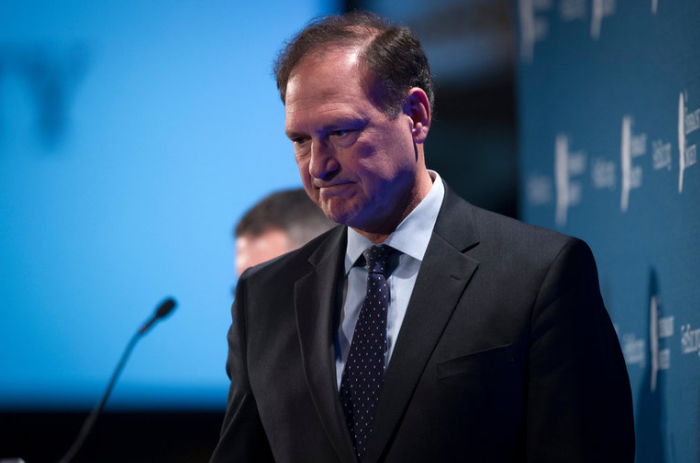By Adam Liptakjan
WASHINGTON — In a case that could affect the education of 6.7 million children with disabilities, the Supreme Court on Wednesday struggled to decide whether it should require public schools to do more under a federal law that calls for them to provide a free education that addresses the children’s needs.
Justice Samuel A. Alito Jr. said the court was being asked to choose among several finely shaded formulations. “What is frustrating about this case and about this statute is that we have a blizzard of words,” he said.
The court appeared uneasy with a standard used by many appeals courts, which have said that providing a modest educational benefit was enough. But some of the justices indicated that they were concerned about the costs that any changes could impose.

Justice Stephen G. Breyer said that a new standard might also invite costly litigation. “If we suddenly adopt a new standard, all over the country we’ll have judges and lawyers and people interpreting it differently,” he said. “I foresee taking the money that ought to go to the children and spending it on lawsuits and lawyers and all kinds of things that are extraneous.”
The case concerns an autistic boy whose parents, unhappy with his progress at his public school in Colorado, enrolled him in a private school and sought reimbursement for the tuition, currently around $70,000 a year. Under the Individuals With Disabilities Education Act, children with disabilities are entitled to a free public education that addresses their needs.
The lower courts have disagreed about what kind of programs public schools must provide. In the Colorado case, a federal appeals court ruled that a modest benefit to the boy was enough and that no tuition reimbursement was warranted.
Neal K. Katyal, a lawyer for the school district, pointed out that in the first half-hour on Wednesday two lawyers proposed nine different standards. For his part, he said an educational program was sufficient if it provided benefits that were “more than de minimis,” the standard used by the appeals court in the case Endrew F. v. Douglas County School District, No. 15-827.
Several justices expressed concerns about the potential financial burdens on school districts. “Is there any place to discuss the cost that would be incurred for, say, severely disabled students?” Justice Anthony M. Kennedy asked.
Justice Alito also appeared wary. “No matter how expensive it would be and no matter what the impact in, let’s say, a poor school district would be on the general student population, cost can’t be considered?” he asked.
But lawyers for the boy’s parents and for the federal government, which largely supported their position, said that as a general matter the schools must pay whatever the programs cost.
Jeffrey L. Fisher, a lawyer for the parents, said most cases did not require schools to spend very much. “They involve things like providing Braille textbooks, providing an iPad, providing some specialized instruction by a staff member who’s already on staff,” he said.
But he added that “there are going to be some extreme cases.” In those situations, he said, referring to the federal law, “the act does not permit cost to trump what the act otherwise requires.”
Mr. Fisher said public schools should be required “to provide substantially equal educational opportunities” to disabled children, but that proposed standard met resistance.
Justice Ruth Bader Ginsburg said the court had tacitly rejected it in a 1982 decision, Board of Education v. Rowley. Justice Elena Kagan said she had “some feeling that the word ‘equality’ is a poor fit for this statute.”
Mr. Fisher proposed an alternative for justices uncomfortable with the word “equal.” He said the court could require “a level of educational services designed to allow the child to progress from grade to grade in the general curriculum.”
Several justices said that standard could not be achieved for students with severe disabilities.
In those cases, said Irv Gornstein, a lawyer for the federal government, the court should use a different standard, one where he said “we have a slight area of disagreement” with the boy’s parents.
“We would say significant progress toward grade-level standards, not as close as possible to grade-level standards,” Mr. Gornstein said.
Justice Sonia Sotomayor asked if the court could substitute “meaningful” for “significant.” Mr. Gornstein responded that the two were synonymous, adding that he would also be content with “appropriate.” But he asked the court to avoid “meaningful” because “it means different things to different courts.”
Justice Kagan responded that whatever standard the court announced might have the same problem. “So we should come up with our own that can then be applied in different ways in different courts?” she asked.
That was the challenge, Justice Alito said. “What everybody seems to be looking for is the word that has just the right nuance,” he said.